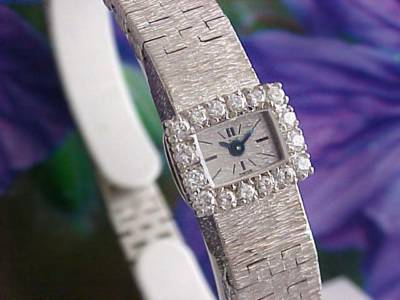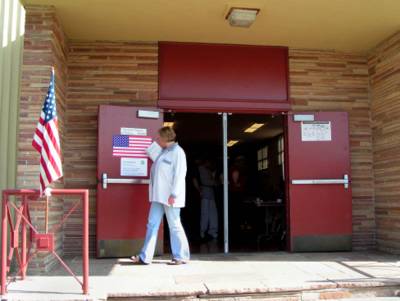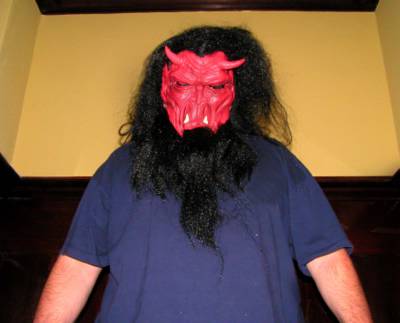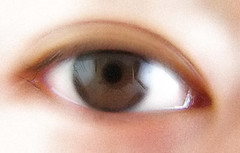Bush has won a second term in office. This time, he won it fair and square. Though I fear for this country, now more than ever, because of Bush's re-election, I cannot dispute the fact that the majority of Americans want him in power. It leaves me wondering what has happened to this country. A country whose political values and principles are supposed to be outlined and enforced in the Constitution.
Even though the race was very tight, it still surprises me that so many people seem to have ignored the fact that one man's singled-minded vengeance lead us into Iraq and away from Bin Laden. Bush's father outlined why he didn't depose Saddaam Hussein. If W. Bush has a logical reason for not going after Bin Laden, then tell us for God's sake.
The way it stands now, it looks like Bin Laden is pulling off a Ronald Reagan. Let them spend until they can spend no more. Bin Laden stated after 9/11 that his real goal is to adversely affect the US economy more than anything else. Can't do anything without money and resources.
Anyway, I wasn't going to rant about the election results. No matter how much you disagree with a president, I think for most people, they can agree that almost every president has done something positive. Because I'm a Democrat, I'm going to focus on Republicans and conservatives, with one exception.
Richard Nixon
Good
Nixon is the quintessential American political villain. He holds a more prominent position of infamy in most American's minds than Benedict Arnold, but aside from lifting himself out of utter poverty, during the Great Depression, to become President of the United States, during his presidency, he accomplished something, something utterly amazing and brilliant, that positively affects American and global economies and policies to this day.
China.
Through diplomatic channels, he and Kissinger opened up the human-rights violating, despotic, steroid-gymnastics-weight lifting-loving, oppressive regime of Mao's China to America and the world, without military force. Where would Wal-Mart be without China?
America's desire to keep China open, as a responsibility to the US and the world, has not changed in the past 30 or so years. However, 30 years of diplomacy and American obfuscation experienced a major setback when Bush told Charlie Gibson on national TV that he would, without question, defend Taiwan militarily if it was attacked by China. He said, "The Chinese must understand that." Hours later, he re-obfuscated.
China has the largest, and arguably the strongest and best trained, military force in the world, and it is a technologically advanced society. That's not to say that the US would lose a military battle against the Chinese or that the Chinese wouldn't be on the wrong side of the global fence if they attacked Taiwan, but military success would come at an enormous human and financial price. We're the only thing keeping China from destroying Taiwan, and we can't appear to take sides just yet.
Gerald Ford
Good
Believed in the Founding Father's principles of a free America. He believed in an America where everyone, including his wife, has a right to their opinion and a right to peacably protest. Betty Ford led a protest outside the White House during his presidency. She was a vocal opponent to some of her husband's policies. When asked what President Ford thought about Betty's actions, he told reporters that she is a citizen of the US just like anyone else and she has every right to her own political views.
Ford and Nixon both loved their wives enormously. I saw parts of Pat Nixon's funeral. President Nixon was so overcome with grief that I thought he wanted to jump into the grave.
Bill Clinton
Good
I do not believe that a president can "create" a good or bad economy, but I do believe that a president can take steps to either encourage growth or hasten a downward spiral. Clinton is the former. He greatly reduced the size of the federal government and created an unprecedented federal surplus. Unlike Reagan, Clinton didn't accomplish this feat by drastically cutting vital social programs that, ultimately, effect the economies of the lower middle class. He cut wasteful beaurocracy and eliminated duplicate positions and unnecessary overhead (managerial and otherwise) in the federal government. Most importantly, he let Greenspan do what he does best, without much interference, VERY unlike George W. Bush. By the way, I think Clinton and Reagan are a prime example of politicians that agree on principle, about some things, but disagree abouth methods.
George H.W. Bush
Good
Recognizing when he's made a mistake. Everyone in the White House thought Richard Clarke was ridiculous for suggesting that Iraq would attack Kuwait, but as soon as Clarke's prediction came to pass, Bush brought Clarke into the fold.
Read more!















